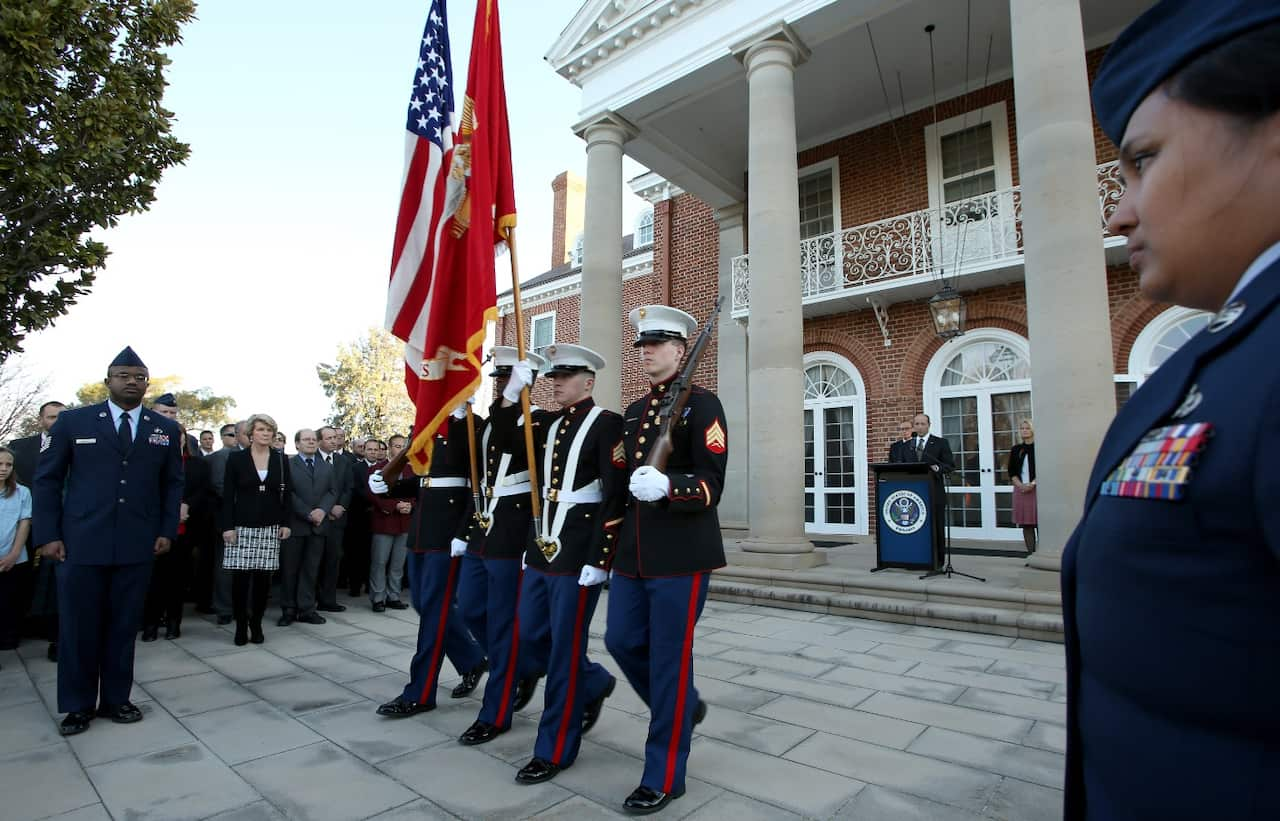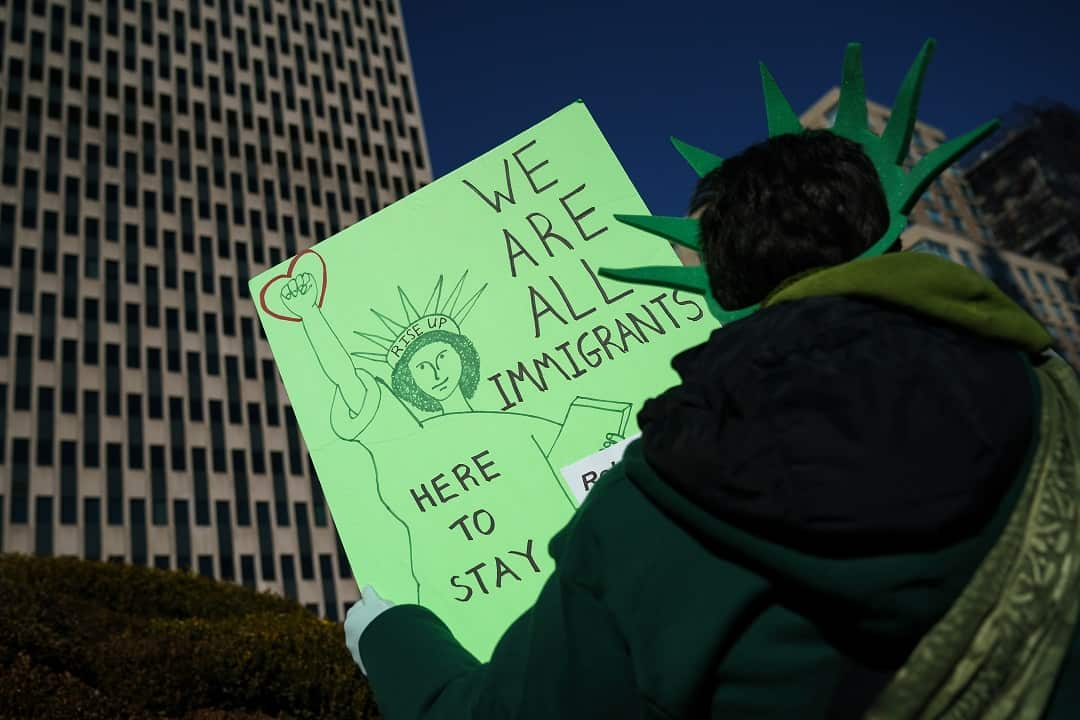The US House of Representatives passed a stop-gap funding measure late Thursday that would avert a government shutdown, sending it to the Senate where Democrats have vowed to block it.
“We have no idea what’s going to happen,” one government official said.
The looming federal shutdown would end all non-essential federal government functions, with the potential to impact the thousands of Australians who travel to the United States every week and the tens of thousands who live there.
In the event of a shutdown, federal employees for agencies considered non-essential are ordered to stay home until a budget deal is struck, at which point they are paid retroactively. The most recent shutdowns - in 1995, 1996 and 2013 - saw some 800,000 workers furloughed per day.
Key government bodies such as the White House, Congress, State Department and Pentagon would remain operational, but would likely furlough some staff. The military would still report for duty, but troops - including those in combat -- would potentially not be paid.
SBS understands that the United States’ Embassy in Canberra and its consulates across Australia have been deemed essential services, and will continue to provide full visa and consular services to both Australians and US citizens.
The impact may be more severe in the United States, however, where federal parks and monuments may be closed by Monday, including the Statue of Liberty, Yellowstone National Park and a number of major museums in Washington.

Marines post colours at the September 11 Remembrance Ceremony at the United States Embassy in Canberra (AAP) Source: AAP
The Trump White House is reportedly attempting to find work-arounds to keep national parks open in order to contain the political fallout. The closure of parks and monuments was a major source of frustration for travellers during previous shutdowns in 2013 and 1995.
There may also be an impact on some Australians attempting to start new jobs in the United States, especially if a potential shutdown stretches into February.
The United States Citizenship and Immigration Services (USCIS), the agency which handles the administration of working visas in the United States, is mostly self-funded and will continue to process visa and immigration paperwork.
However, a critical part of the agency, the ‘E-Verify’ system for assessing and verifying work authorisations, may be suspended, as it was in the 2013 shutdown.
USCIS is likely to post advice on its website for those affected by the suspension, as they did in 2013.
With a bill passed by the House, all eyes now turn to the US Senate, where Democrats appear to be holding firm on demands that a fix is found to prevent the expiry of a temporary lawful status for almost one million unauthorised immigrants who were brought to the country as minors.
With the federal government set to run out of money on Friday at midnight - the eve of the one-year anniversary of Donald Trump's inauguration - the bill cleared the House with a 230-197 vote.
But prospects appeared gloomy in the Senate, where Democrats eager for leverage on budget and immigration deals were intent on shooting it down.
"The House just did the right thing - for our men and women in uniform AND for the millions of children who rely on CHIP," tweeted House Speaker Paul Ryan following the vote, referring to a popular children's health insurance program.
Ryan urged Senate Democrats to "do the right thing by the American people."
President Trump on Thursday added to the chaos gripping Washington, weighing in on the intense Republican maneuvering aimed at avoiding a politically embarrassing funding debacle.
After a burst of tweets, he second-guessed top Republican lawmakers and slapped down his own chief of staff, who had been leading a White House push on Capitol Hill for a budget compromise.
Arriving at the Pentagon for a visit, Trump told reporters the government "could very well" shut down Friday.
The finger-pointing had already begun, with each side blaming the other for a failure to reach a budget compromise after three previous funding extensions.
"A government shutdown will be devastating to our military... something the Dems care very little about!" Trump tweeted in the morning.
And yet in another tweet, Trump criticized the Republican short-term funding measure, opposing a sweetener intended to make it hard for Democrats to vote against it.

Immigration activists and clergy members participate in a silent prayer walk in protest against the Trump administration's immigration policies . Source: Getty Images
Bargaining chip
The sweetener is a six-year extension of CHIP, a program Democrats have worked hard to protect.
But Trump insisted: "CHIP should be part of a long-term solution, not a 30 Day, or short-term, extension!"
Republican Senator John Cornyn quickly corrected Trump in a counter-tweet: "The current house Continuing Resolution package has a six-year extension of CHIP, not a 30-day extension."
Nancy Pelosi, the top Democrat in the House, dismissed the Republicans move on CHIP as "like giving you a bowl of doggie doo, put a cherry on top sundae. This is nothing."
"This CHIP should have been done in September," she told reporters.
Up against a similar deadline last month, lawmakers had passed a short-term resolution to keep the federal government funded until January 20.
Many Democrats are already opposed to another short-term fix, leaving Republicans to rely on their own divided caucus to advance the measure.
If it fails, Democrats will gain greater leverage to insist on a funding compromise that includes protection from deportation for the so-called "Dreamers," the estimated 700,000 immigrants brought to the United States illegally as children.
Negotiations on a bipartisan compromise that includes a fix on DACA, as the Deferred Action on Childhood Arrivals program is known, collapsed in acrimony at a White House meeting last week.
Trump's reported reference to African nations and Haiti as "shithole countries" ignited a still-smoldering political firestorm.
Share


